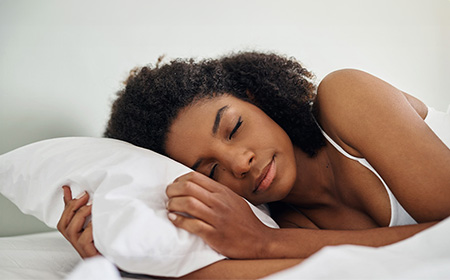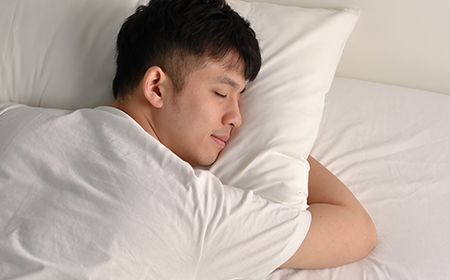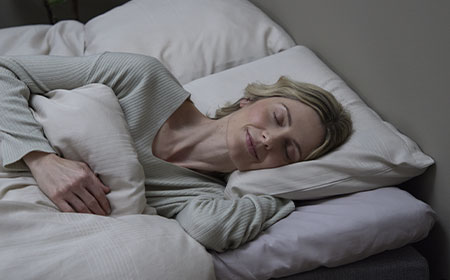How to stop snoring is a question that occupies many people. Snoring can be unbearable to listen to, and it can lead to an unwanted battle between you and your partner. With a little basic knowledge and the following advice, you might be able to find a snoring cure.
What kind of people snore?
A lot of people take interest in snoring cures since snoring is a universal problem, and more than one in three of us do it. If you are male, advanced in years and overweight, you are more likely to snore. But children, women and men of all ages are all capable of snoring.
If you want to find out how to stop snoring, you should always visit a doctor and get the cause of your snoring examined.
Why do we snore?
When you want to find out how to stop snoring, a little basic knowledge about snoring comes in handy. Blockage of the respiratory passages, caused for example by swollen tonsils, adenoids or allergies, is a typical cause of snoring.
The sound occurs because the soft palate and the upper respiratory tract fold together. When the muscles in the throat relax the tongue falls back and vibrates against the palate and uvula. That makes less space for the air to escape and that results in the snoring sound.
How much and how loud you snore varies. However, it is often in deep sleep that people tend to snore the most, because the muscles are completely relaxed at that time. As we get older our muscles become looser so it is quite common to start snoring later in life.
People who are overweight are more likely to be in need of a snoring cure, because fat can sit on the palate, making less room for the breath to pass the uvula. Exhaustion can also lead to snoring because the muscles are unusually relaxed. Reduced air passage when you have a cold is another cause of snoring at night. Also a harmless tumour in the respiratory passage might be the cause.
How does snoring affect your sleep?
Many people have absolutely no idea that they snore until their sleeping partner informs them. Mild snoring doesn't necessarily affect sleep quality, but if you snore heavily it can cause sleep disturbances. This is because some people snore so loudly that they wake themselves up with the deafening racket. Sleep disturbances can also occur because the sound wakes up the person sleeping next to the snorer, who then gets irritated and elbows the snorer, thus disturbing the sleep of both parties.
Snoring is not dangerous, but in severe cases it may be an indication of sleep apnoea. This is detrimental to health, because breathing is interrupted for 10-60 seconds, before ending up in one large snoring eruption.
How to stop snoring
There are several tips on how to reduce, or cure the nuisance caused by snoring:
- Avoid sleeping on your back, since this position is more likely to block the respiratory passages. Break the habit by sewing a tennis ball into the back of your sleepwear. That makes it uncomfortable to sleep on your back
- Earplugs work for some people, but mostly in cases of mild snoring
- Nose patches or anti-snoring spray can help you stop snoring or partially muffle the sound
- An ergonomic pillow can increase the passage of air in the throat, thereby helping you to stop snoring
- Avoid alcohol and antihistamines in the last few hours before going to sleep, since they can exacerbate snoring, because they numb the muscles
- Losing weight can put a stop to snoring, because it can create more space for the passage of air in the throat. A few kilograms may be enough to have an effect
- If an under-hung jaw or protruding front teeth is/are the cause of your snoring, a tooth guard may cure the snoring. Find out about your options at a local pharmacy or from your dentist
- Surgery is an option for snoring, but it should be the absolute last option because surgery can cause other complications
If none of the above snoring cures helps, one solution might be for the snorer to go to bed later, so that the other person manages to fall asleep before the “music” starts. In the worst-case scenario, you may have to sleep separately to guarantee a good night’s sleep.
Source:
http://sleepfoundation.org/sleep-disorders-problems/other-sleep-disorders/snoring
http://www.sleepeducation.com/essentials-in-sleep/snoring/overview-and-facts




